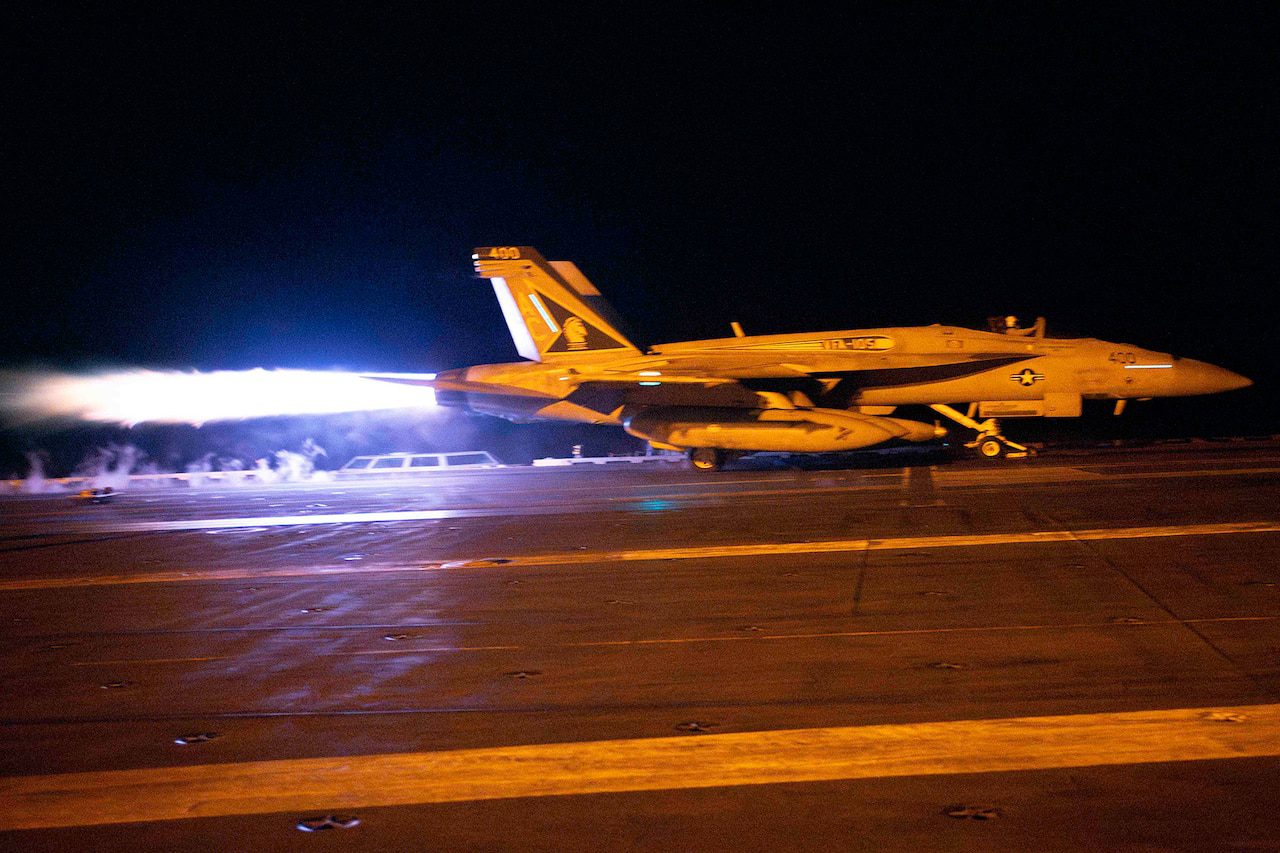Ships Fleeing The Red Sea Now Face Perilous African Weather
By Alex Longley and Paul Burkhardt (Bloomberg) –Ships sailing around the southern tip of Africa are wrestling with a bout of bad weather that has already run one vessel aground and...


The crew aboard the USS Gravely launches Tomahawk Land Attack Missiles in response to attacks on shipping by the Iranian-backed Houthi terrorist group in the Red Sea, Jan. 12, 2024. U.S. Navy Photo
Initial assessments of Monday’s joint military strikes by the U.S. and UK against Houthi-controlled areas of Yemen have shown they were successful in degrading the capabilities of the Houthi forces to launch attacks on international shipping, the Pentagon said Tuesday.
The strikes marked the second round of precision attacks by the U.S. and United Kingdom, backed by support from Australia, Bahrain, Canada, and the Netherlands, in response to a series of aggressions by the Iran-backed terrorist group against commercial vessels in the Red Sea.
The latest U.S.-led strikes damaged eight Houthi targets, including an underground storage site and locations related to the rebel group’s missile and air surveillance capabilities. These actions follow joint strikes on Jan. 11 by the U.S.-led coalition targeting command and control nodes, munitions depots, and various other Houthi military facilities.
The U.S. has also launched several unilateral strikes against the Houthi targets posing imminent threats to vessels in the region following the Jan. 11 joint strikes.
In a joint statement, the partner nations said that yesterday’s precision strikes were intended to disrupt and degrade the capabilities that the Houthis use to threaten global trade and the lives of innocent mariners in response to a series of illegal, dangerous and destabilizing Houthi actions in the Red Sea and Gulf of Aden.
While battle damage assessments are ongoing, U.S. defense officials believe that Monday’s strikes were successful in further degrading Houthi capabilities.
According to Pentagon officials, Houthi attacks have led to more than 14 shipping companies ceasing operations in the Red Sea, severely impacting global commerce and regional economies.
Since mid-November, the Iran-backed group has launched attacks against at least 33 commercial vessels using a a variety of weapons including anti-ship ballistic missiles, land-attack cruise missiles, uncrewed surface vessels and unmanned surface vehicles, officials said.
In a joint statement following yesterday’s strikes, the U.S. and its partners affirmed that they aim “to de-escalate tensions and restore stability in the Red Sea,” but warned Houthi leaders that “we will not hesitate to defend lives and the free flow of commerce in one of the world’s most critical waterways in the face of continued threats.”
Last week, President Biden candidly acknowledged that defensive military strikes have not been effective in deterring Houthi attacks. “Are they stopping the Houthis? No. Are they going to continue? Yes,” Biden told reporters.
Operation Prosperity Guardian, launched by Secretary of Defense Lloyd J. Austin III, is an international maritime task force involving over 20 nations to ensure freedom of navigation in the Red Sea and Gulf of Aden. The operation is separate from the defensive strikes against the rebel stronghold in Yemen and operates under the Combined Maritime Forces and Task Force 153, a U.S. Navy-led initiative.
Join the gCaptain Club for curated content, insider opinions, and vibrant community discussions.


Join the 107,180 members that receive our newsletter.
Have a news tip? Let us know.
Access exclusive insights, engage in vibrant discussions, and gain perspectives from our CEO.
Sign Up




Maritime and offshore news trusted by our 107,180 members delivered daily straight to your inbox.



Essential news coupled with the finest maritime content sourced from across the globe.
Sign Up